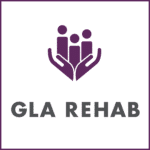Occupational therapists often work with clients who have sustained a Mild Traumatic Brain (mTBI) Injury, also known as a concussion. The role of the OT is to help the client return to normal life and to provide education on the recovery process and training on ways to manage the symptoms of the injury.
When working with a child with an mTBI, the OT must also consider treatment of the injury from a developmental perspective. The brain is still in the process of developing in young clients and as such, may be more vulnerable to the effects of an mTBI.
Like all clients, children who have experienced an mTBI usually want to return to normal life as quickly as possible. And for most children, attending school is an integral part of normal daily activity.
Research is still limited on the best course of action to follow when helping a child return to school after an mTBI. What we do know is that returning to school too soon following an injury may result in delayed recovery. At the same time, there is evidence that keeping children out of school for too long after an injury can also exasperate symptoms. It can be challenging to know exactly how to proceed.
Once the child has received medical clearance to return to school, it is often the occupational therapist that will facilitate the process of integrating the child back into the classroom. Here are some tips that may help the process:
- Return to learning gradually. Often starting with a half day of school is enough for a child. After a few days or weeks he or she can slowly work up to attending a full day.
- Involve the child’s teachers and principal. By letting the school staff know about the injury, providing medical documentation and sharing information about mTBI, special learning accommodations may be approved by the school. Examples of learning accommodations include taking rest breaks during class or having a helper take notes during lessons.
- Let the child guide the way. Listen to his or her complaints of headaches, fatigue or other symptoms related to the mTBI. If he or she is telling you that things are moving too fast, it’s important to listen.
- Be family centered. The child’s family members and especially mom and dad are often the best sources of information about how the child is really doing. If he or she seems to be managing at school but then is especially tired or cranky at home in the evening, the return to school plan may need to be adjusted.
mTBI in children is a challenging issue for clients, families, schools and health care professionals alike. An OT can help the process of returning to school go smoothly and can facilitate an optimal recovery for children.
For more information on the work we are doing with our pediatric clients, please feel free to contact us. We will be happy to provide you with additional information.
Written by:
Kathryn Decker, MScOT Reg. (Ont)
Registered Occupational Therapist


